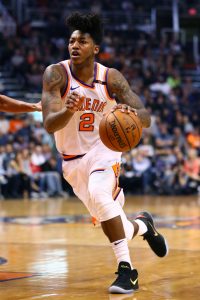During a recent Q&A with ESPN’s Rachel Nichols, Pelicans big man Anthony Davis said he believes he’s the NBA’s best player. His head coach, Alvin Gentry, agreed with that assessment, telling reporters this week that there’s no one in the NBA that New Orleans would trade Davis for, as Andrew Lopez of NOLA.com writes.
“If you don’t want to call him the best, I call him the most valuable. Because if you can trade him for anybody then he is the most valuable guy in the league,” Gentry said, according to Lopez. “There’s no one in the league we would trade him for. … Not even Beyoncé. [If] we wouldn’t trade him for her, then he’s probably untouchable.”
Davis won’t be eligible for free agency in 2020, but this is crucial year for the franchise, according to Scott Kushner of The Advocate, who argues that the outcome of the 2018/19 season will be viewed “entirely through the lens of Davis’ future.” As of July 2019, the Pelicans will have the opportunity to lock up Davis to a long-term contract that could make him the highest-paid player in NBA history, and New Orleans’ top priority over the next year will be to sell him on that extension, Kushner says.
Here’s more on the Pelicans:
- The Pelicans aren’t panicking after their 0-5 preseason, but there are a few issues – particularly on defense – that need to be addressed as the regular season gets underway, Kushner writes in a separate piece for The Advocate.
- Most undrafted free agents who sign with NBA teams during the summer end up on two-way contracts or playing for G League affiliates. That makes Kenrich Williams a rarity, tweets ESPN’s Adrian Wojnarowski. Williams’ contract won’t be fully guaranteed until January 10, so his grip on a roster spot isn’t totally secure, but he’s on the Pelicans’ 15-man squad to start the season.
- The Pelicans will be expecting a lot out of Elfrid Payton this season, as the young point guard will takes over Rajon Rondo‘s role as the starting point guard. However, the Louisiana native is happy to be home and is downplaying the pressure that comes with filling Rondo’s shoes, per Rod Walker of The Advocate. “The only pressure is the pressure I put on myself to be better than I was last year, to be better than I was yesterday,” Payton said. “Just doing my best to get the best out of everybody in here is the only pressure I put on myself.”
